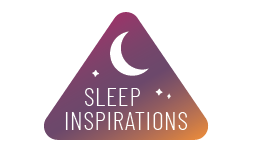Snoring is a common occurrence and the subject of much humor and distress.
Vibrations in our soft palate during sleep produce a noise that can be soft or loud,
reassuring or irritating, and an insignificant or important medical problem.
Loud and irritating snoring is often an indicator of Obstructive Sleep Apnea.
However, even soft snoring may indicate issues.The noise made when the soft
tissues in the back of the throat vibrate is what we call snoring. The vibrations are
caused by turbulent airflow through the back of the throat and around the palate.
Medical Importance:
As noted, snoring can be an indication of Obstructive Sleep Apnea. Loud snoring that
can be heard outside the room or that causes sleeping partners to leave the
bedroom is highly related to the presence of obstructive sleep apnea. Not all people
with obstructive sleep apnea snore, but snoring is one of the leading indicators of
obstructive apnea.
Snoring can cause significant disruption to personal relationships within marriages
and with significant others. If one partner snores to the extent that the other partner
cannot sleep well, difficulties arise. There are times when snoring needs to be
addressed as a sleep problem even when no obstructive sleep apnea or other
abnormalities are present.Snoring can also disrupt the sleep of the individual who is
snoring. This disruption can produce non-restorative poor quality sleep at night.
Daytime sleepiness can result.
Causes
Turbulent airflow through the throat produces snoring. It is turbulent because of the shape and size of the air passage in the throat, which is largely genetic in determination. While the shape of your mandible, tongue and palate are a gift from
your parents, medical conditions, surgical procedures and age will produce changes as well. Significant weight gain can also produce changes. All of these factors play a role in whether someone will snore.
Financial Considerations
In the United States, most commercial health insurance policies and essentially all government health insurance policies do not consider snoring to be a medical condition. If you want to see a physician solely for the purpose of evaluating your
snoring, it is possible that you would not have insurance coverage for that visit. Medicare leads the way in determining what is a medical condition versus what is
not. Their position is that snoring is not a medical condition.
Most physicians are aware of this fact and will question you carefully for things like
poor quality sleep, daytime sleepiness, hypertension or other indicators that a sleep disorder may be present.
Summary
Snoring is a significant indicator of sleep disorders. Variations in the sound, observed pauses in breathing, choking noises and loud snoring are all strong indicators of a need for professional evaluation. Snoring with poor quality sleep,
with known high blood pressure and morning or nighttime headaches are also indicators for evaluation.
Updated March 2024
